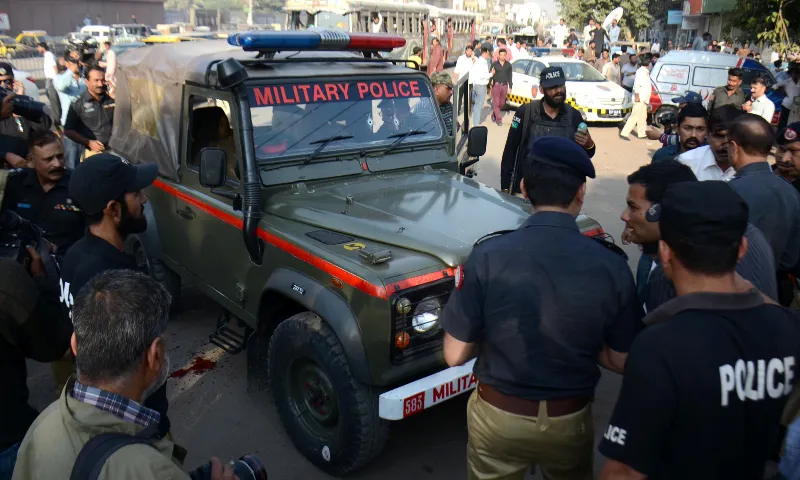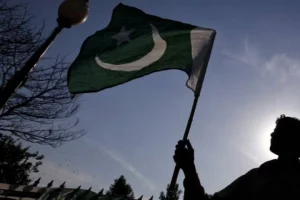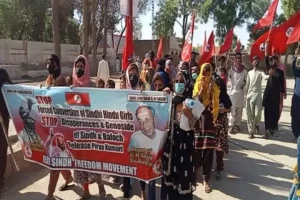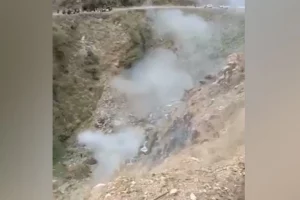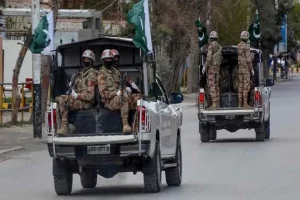The Pakistan police filed a case against the Sindhudesh People’s Army (SPA)—an unheard of Sindhi separatist group for an attack on Chinese-origin people in Karachi last week. The police also claimed that the attack was carried out to undermine Pakistan-China relations and sabotage their joint projects in the country.
The gun attack killed Ronald Raymond Chou and severely injured Dr Richard Hu and his wife Phen Teyin in the HU Dental Clinic on Wednesday.
With not much known about the new Sindhi group the SPA, India Narrative speaks with Captain Alok Bansal, Director of the India Foundation and author of the book, Balochistan in Turmoil: Pakistan at Crossroads, who says Sindhi nationalist groups keep popping up in Sindh. “We are already aware of the Sindhudesh Liberation Army and the Sindhudesh Revolutionary Army. Now we hear about the Sindhudesh People’s Army. These groups try to tap into the discontent of the people. Many of these outfits emerge and then disappear. Sometimes they use different names to confuse authorities”.
Pakistani separatist groups as well as terror groups understood long back that targeting Chinese nationals and its projects like the China Pakistan Economic Corridor (CPEC) was worthwhile.
CPEC once again under discussion in think tank circles following the latest attack against Chinese nationals in Pakistan. I find it hard to take anyone seriously who still takes CPEC seriously. False hopes sold by the Pakistani state to its public were always based on fantasies.
— FJ (@Natsecjeff) September 28, 2022
Capt. Bansal says: “The Sindhi separatist groups had said in 2013 that Chinese assets in Pakistan are valid targets for attack. Before them in 2008, the Baloch outfits too realised that attacking Chinese assets has value. The Taliban arrived at this conclusion much earlier that attacking Chinese would get them attention. These outfits think that the Pakistan government does not bother about attacks on the Pakistani people, but they get considerable attention when they attack Chinese assets”.
On the Sindhi-Baloch connection, Bansal says: “The Sindhi rebels do not have widespread support among the people despite their large population which is unlike the Baloch insurgency. The Sindh terrain is not conducive to sustain an armed rebellion unlike the sparse mountainous Baloch areas. While there is discontent in Sindh, the people are not alienated because the Sindhis enjoy a stake in the Pakistan government through the Pakistan People’s Party (PPP). The Baloch insurgents have linked up with the Sindhi rebels against the Pakistani establishment as they want numbers on their side”.
Earlier in 2020 as many as four Baloch outfits had joined hands with the Sindhudesh Revolutionary Army (SRA) to create the umbrella organisation—Baloch Raji Ajoi Sangar (BRAS), to oppose the China Pakistan Economic Corridor (CPEC) in Balochistan and Sindh.
Sindhi nationalism is low-intensity and nowhere close to the intensity of the Baloch conflict. Still, the Sindhi groups keep popping up in the news with small attacks, many limited to blowing up train tracks in the province. One of the bigger attacks by the Sindhi separatists was in May this year under which the SRA targeted personnel of the Pakistani Coast Guard in a Karachi market, killing one person and injuring 13.
The repeated attacks on Chinese nationals in Balochistan, Sindh and even in Khyber Pakhtunkhwa, many of whom have been working on CPEC projects, have considerably damaged bilateral relations between the two all-weather friends. Beijing is pressuring Pakistan to allow Chinese security forces to protect CPEC, an idea which Islamabad has been evading.
The Chinese-origin couple are Pakistani nationals but hold Canadian passports as well. Beijing has waived off the incident lightly unlike previous occasions when it had upbraided Pakistan for providing inadequate security to its nationals, many of whom have been feeling insecure and live under poor conditions in Pakistan.
Following in the footsteps of the government, the Chinese media too ignored the attack.
Also Read: Has the Canadian gold miner bitten more than it can chew in Balochistan?






